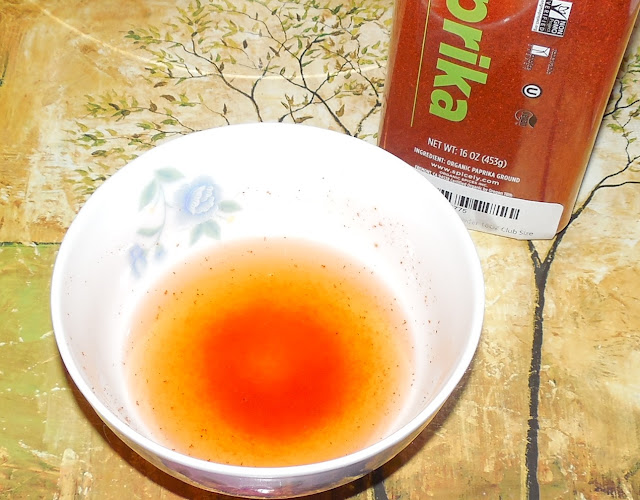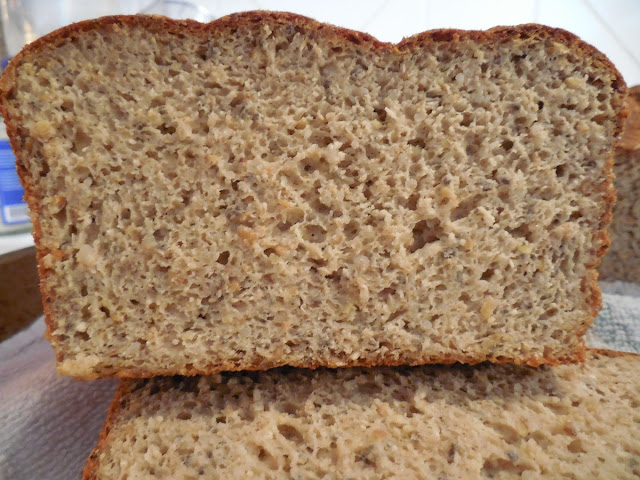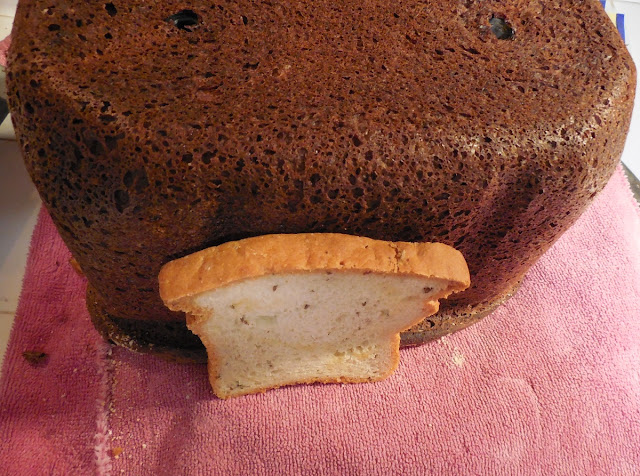Paprika, Chili Powder, and Gluten Free Spices Resource
 |
| A certified gluten free spice is a beautiful thing! |
To simplify questions of "am I glutened or just not feeling well?", it's important to keep hidden gluten at bay. One aspect of this is, spices. Spices can be tricky because traditionally, the common supermarket brand, McCormick has been gluten free for many single ingredient spices. However, there are many reasons why someone might want more certainty, such as a spice with a Certified Gluten Free label. Additionally I try to stay with Organic spices because, even if I weren't worried about pesticides or irradiation, I think they taste better.
Reasons Why Spices May Be Glutening You
- They may have been cross contaminated at the manufacturing plant. Sure most companies use Good Manufacturing Practices (GMP) and reduce this risk to a smaller one. However, GMP is only as good as the people working there daily. It only takes one mistake to ruin a Celiac's entire week.
- They may have fillers or flow agents that are made from wheat or other gluten grains. Sometimes you get an item with added glucose which is labeled as being derived from wheat. This can be OK if it was formulated to exclude gluten, but why worry?
- Maybe the spice isn't cross contaminated at all. Maybe it's full of pesticides and that's upsetting your system. Ditto for irradiation. Use a system of checking your spices to be sure the flavor is right.Such as direct tasting, or mix a little with water and taste it.
- Spices usually come from a foreign country which may not be aware of the exact gluten free standards that we use in the US. For example, they may use the same mill to grind the spices as they use for whole wheat flours. There's no way to know unless you call them and ask.
- Sometimes I'm presented with a choice like, if I choose organic spices, then they don't claim it's gluten free. Don't use another designation, not even "paleo" as a proxy for gluten free. If it doesn't claim gluten-free, then it probably isn't.
- Beware of fake certification labels! These should be illegal, but I've seen many items labeled with a fake certification symbol, including a rectangular one with GF in it.
These are the certified GF labels, there are 4 I know of: https://gfjules.com/wp-content/uploads/2016/06/The-only-independent-Gluten-free-Certifiers-in-the-US-gfJules.jpg Thank you, to the GF Jules website for providing this clarity.Updated in 2020 https://www.nixgluten.com/2020/03/gluten-free-labeling-updates-2020.html
How to check your spices for flavor: This method is usually only used on saffron since it's so expensive. You put a little bit into a small bowl of water and watch to see how strong the color becomes. Then you take a sip to see if it tastes good. I've identified a lot of yucky spices by this method. Or just very old ones with no flavor left. Spices generally only keep their flavor for around one year, but using this method you can check to see that your spice is still fresh, and some spices last longer than you'd expect. For spices like saffron, turmeric and paprika which are supposed to provide color, this step makes a lot of sense.
 |
| Look for the certification label. |
Reasons Why Organic is A Better Choice
- I had to throw out a batch of black pepper because the flavor was off, It was such a "diesel" flavor that I had to assume they'd sprayed the plants with kerosene or something. That can't be healthy and certainly isn't yummy.
- There are many claims about the dangers of pesticides and many discussions on how harmful that is. Wherever you stand on those issues, it's important to keep away from pesticides whenever possible. When in doubt, I opt for the path of caution.
- Organic spices are not permitted to be irradiated. The exact nature of the irradiation used to preserve foods for longer shelf life can vary. And claims about the healthy/unhealthy status of such processing also vary. Once again, the most cautious choice is to avoid it if possible.
- A special case: Glyphosate is sometimes used as a desiccant just before harvest of some plants because it makes harvesting easier if the plants are all dried out. You might have some of this in your home, it's called Roundup when it's sold in a hardware store. In the case of glyphosate there is enough evidence of its dangers that it's led to several lawsuits. I take that as a sign that Rachel Carson was right, and as time goes on, I see more evidence that she's right.
The human body is capable of clearing pesticides, but the liver does that and our livers are definitely overworking, especially as people with Celiac Disease who live in the modern world. It's very hard to avoid chemicals our body has to deal with. Just keep focusing on the most nutritious food, maybe take some vitamin supplements, and choline and you should be OK.
Certified Gluten Free Meaning
- Certified gluten free means the product undergoes routine testing to ensure that they are still gluten free, that their assumptions are in fact true. It's a verification. It's also as good as the people working on it on a given day, but if a mistake is made it's more likely to be caught.
- If a product has "Gluten Free" written on it anywhere, it must abide by the FDA rules of 20ppm or less of gluten in the final product. Certification verifies that this is true, and sometimes requires a stricter standard, like 15ppm or 10ppm.
- This only claims gluten free, it may be an irradiated or sprayed spice, so see the section above for mitigating that risk even if you can't afford Organic.
- If you use mixed spices like curry powder or chili powder, these carry a double risk. Any one ingredient may be contaminated with gluten, a flow agent could be derived from a gluten grain, and the manufacturing plant where they mix it may be contaminated. These are far too many risks. All mixed spices should be clearly labeled gluten free and for my money, there's no point paying for it unless it's certified gluten free.
Mixed spices are a convenience. You could make your own, but it's a hassle. While finding the right spice mix, you might choose to use a single spice substitution. For example, to replace either curry or chili powder, you might use the single spice cumin and then add an accent of a second spice to make them different. In the case of curry: cumin + coriander seed. In the case of chili powder: cumin + fresh red bell pepper (minced fine). For a long time I didn't have a safe paprika to use, so I used minced red bell pepper and sometimes roasted it.
 |
| Grind your own for high risk spices like chili powder. Kashmiri peppers are often mildly hot and can be a substitute for paprika if necessary! |
Manufacturers of Certified Gluten Free Spices
- Spicely
- Badia
- Dion
- Nielsen-Massey (fine liquid flavorings like vanilla, also bulk sales to restaurants)
- Stubbs (bbq supplies! yey!)
Update January 2020: Spicely got back to me a while after I published this, they say that they offer wholesale organic and gluten free spices to restaurants through this website. Spicely deserves a lot of credit for being consumer focused.
Here are those I trust for Organic labeling or for single spices to grind at home:
- Starwest - many organic options, they have no Certified GF at all though, so stick to just single spices, preferably whole and grind it yourself.
- Engage Organics - this is a startup and it looks like some of their items are certified GF, or planned to be, but their website is in the process of being built. Use caution.
- Simply Organic - this can be found in many grocery stores, use caution, because they specify that if they don't claim gluten free, it isn't.
For these lists I used this document to help me locate likely brands, you might find some more options if you look through it. I skipped a few because they had only one or two options so if you're looking for those options, it might help you. Also there are many more brands there for many more purposes than spices. I want to extend my thanks to them for creating it.
There's also a maintained list of safe for Celiac, certified gluten free spices here, but it seems to only include Spicely brand: https://glutenproject.com/certified-gluten-free-spices Soon we'll have the Gluten Dude app which will be a haven for strict gluten free as well. We seem to be making progress toward a safer world for people with Celiac and I'm very thankful for it.
I hope your Holidays went well and I look forward to 2019 with thankfulness and wonder! May all our futures be bright!




